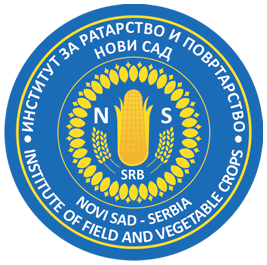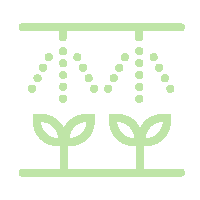Приказ основних података о документу
Unveiling Fungi Armor: Preliminary Study on Fortifying Pisum sativum L. Seeds against Drought with Schizophyllum commune Fries 1815 Polysaccharide Fractions
| dc.creator | Mišković, Jovana | |
| dc.creator | Tamindžić, Gordana | |
| dc.creator | Rašeta, Milena | |
| dc.creator | Ignjatov, Maja | |
| dc.creator | Krsmanović, Nenad | |
| dc.creator | Gojgić-Cvijović, Gordana | |
| dc.creator | Karaman, Maja | |
| dc.date.accessioned | 2024-07-09T10:25:02Z | |
| dc.date.available | 2024-07-09T10:25:02Z | |
| dc.date.issued | 2024 | |
| dc.identifier.issn | 2076-2607 | |
| dc.identifier.uri | http://fiver.ifvcns.rs/handle/123456789/4730 | |
| dc.description.abstract | Amidst worsening climate change, drought stress imperils global agriculture, jeopardizing crop yields and food security, thereby necessitating the urgent exploration of sustainable methods like biopriming for the harnessing of beneficial microorganisms to bolster plant resilience. Recent research has revealed diverse biological compounds with versatile applications produced by Schizophyllum commune, rendering this fungus as a promising contender for biopriming applications. For the first time, this study aimed to investigate the potential of S. commune exo- (EPSH) and intra-polysaccharides (IPSH) isolated from two strains—Italian (ITA) and Serbian (SRB)—under submerged cultivation to enhance the resilience of Pisum sativum L. seeds through the biopriming technique. Testing of the seed quality for the bioprimed, hydroprimed, and unprimed seeds was conducted using a germination test, under optimal and drought conditions, while characterization of the PSHs included FTIR analysis, microanalysis, and determination of total protein content (TPC). The FTIR spectra of EPSH and IPSH were very similar but revealed the impurities, while microanalysis and TPC confirmed a different presence of proteins in the isolated PSHs. In optimal conditions, the IPSH SRB increased germination energy by 5.50% compared to the control; however, the highest percentage of germination (94.70%) was shown after biopriming with the PSH isolated from the ITA strain. Additionally, all assessed treatments resulted in a boost in seedling growth and biomass accumulation, where the ITA strain demonstrated greater effectiveness in optimal conditions, while the SRB strain showed superiority in drought conditions. The drought tolerance indices increased significantly in response to all examined treatments during the drought, with EPSH ITA (23.00%) and EPSH SRB (24.00%) demonstrating the greatest effects. Results of this preliminary study demonstrate the positive effect of isolated PSH, indicating their potential as biopriming agents and offering insights into novel strategies for agricultural resilience. | sr |
| dc.language.iso | en | sr |
| dc.publisher | Basel : MDPI | sr |
| dc.relation | info:eu-repo/grantAgreement/MESTD/inst-2020/200125/RS// | sr |
| dc.relation | info:eu-repo/grantAgreement/MESTD/inst-2020/200032/RS// | sr |
| dc.rights | openAccess | sr |
| dc.rights.uri | https://creativecommons.org/licenses/by/4.0/ | |
| dc.source | Microorganisms | sr |
| dc.subject | agricultural application | sr |
| dc.subject | fungi | sr |
| dc.subject | biopriming | sr |
| dc.subject | stress conditions | sr |
| dc.subject | submerged cultivation | sr |
| dc.subject | Schizophyllum commune | sr |
| dc.subject | Pisum sativum | sr |
| dc.title | Unveiling Fungi Armor: Preliminary Study on Fortifying Pisum sativum L. Seeds against Drought with Schizophyllum commune Fries 1815 Polysaccharide Fractions | sr |
| dc.type | article | sr |
| dc.rights.license | BY | sr |
| dc.citation.issue | 6 | |
| dc.citation.spage | 1107 | |
| dc.citation.volume | 12 | |
| dc.identifier.doi | 10.3390/microorganisms12061107 | |
| dc.identifier.fulltext | http://fiver.ifvcns.rs/bitstream/id/12443/microorganisms-12-01107-with-cover.pdf | |
| dc.type.version | publishedVersion | sr |


